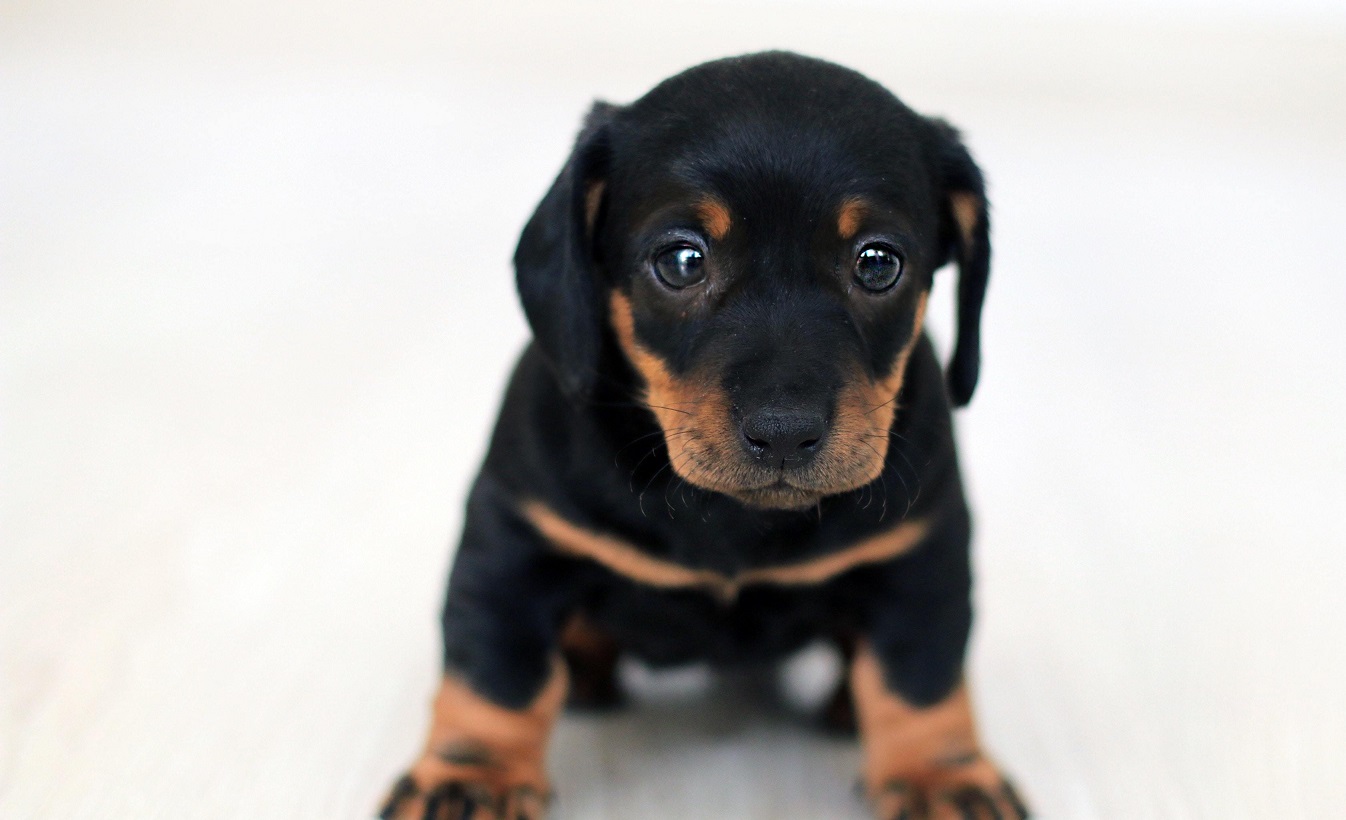If you’re wondering how to socialize a puppy before vaccinations, you’ve come to exactly the right place.
We all know socializing a puppy is one of the most positive and impactful things you can do. By introducing them to a wide variety of people, animals, places, and situations, you’ll be setting the foundations for their future.
The vast majority of behavioral problems in adult dogs can be attributed to genetics, training, and poor socialization.
Obviously, you can’t do much about your pup’s genetics. Training is something you can work on later. But for now, socialization is paramount – after all, there’s only a brief window to do it.
Socialization is something you can do with older dogs, but it’s much more effective when it’s introduced early.
But how exactly do you do it before they’ve fully vaccinated?
And more importantly, should you even try?
The answer to the last question is a resounding YES.
Now, puppies don’t usually get their full set of shots until they’re around 12 weeks old. The problem is, the prime time for socialization comes before this.
Fortunately, there’s plenty of ways you can socialize your pup without putting them at risk.
Obviously, you’ll need to be careful. Parvovirus and distemper are about as fun as they sound – so until your pup is fully protected, you’ll need to tread carefully.
But don’t mistake treading carefully for not treading at all. Providing you apply common sense and stick to a few guidelines, there’s no reason you can’t begin socializing your puppy right here, right now.
Anyway…
Before we start touching on some of the hows and whys of early socialization, I want to introduce you to something that could make a dramatic difference to your experience as a new puppy owner… Dan Abdelnoor’s Puppy Coach Program. (see video below)
You probably don’t need me to tell you that welcoming a new puppy is one of the most joyful experiences in the world. And you certainly don’t need me to tell you it can also be one of the most challenging.
If socialization was the only problem you had to deal with, it’d be one thing. But there’s also the barking, the whining, the biting, the mess… whatever else it is, raising a puppy isn’t easy.
Dan’s program aims to demystify the experience by providing a step-by-step guide to the common issues you’ll face.
So if you want to enjoy the experience rather than being overwhelmed by it…
…Here’s the link to check it out – Puppy Coach – Solve All Your Puppy Training Problems While Setting A Solid Foundation For Your Pup’s Future…
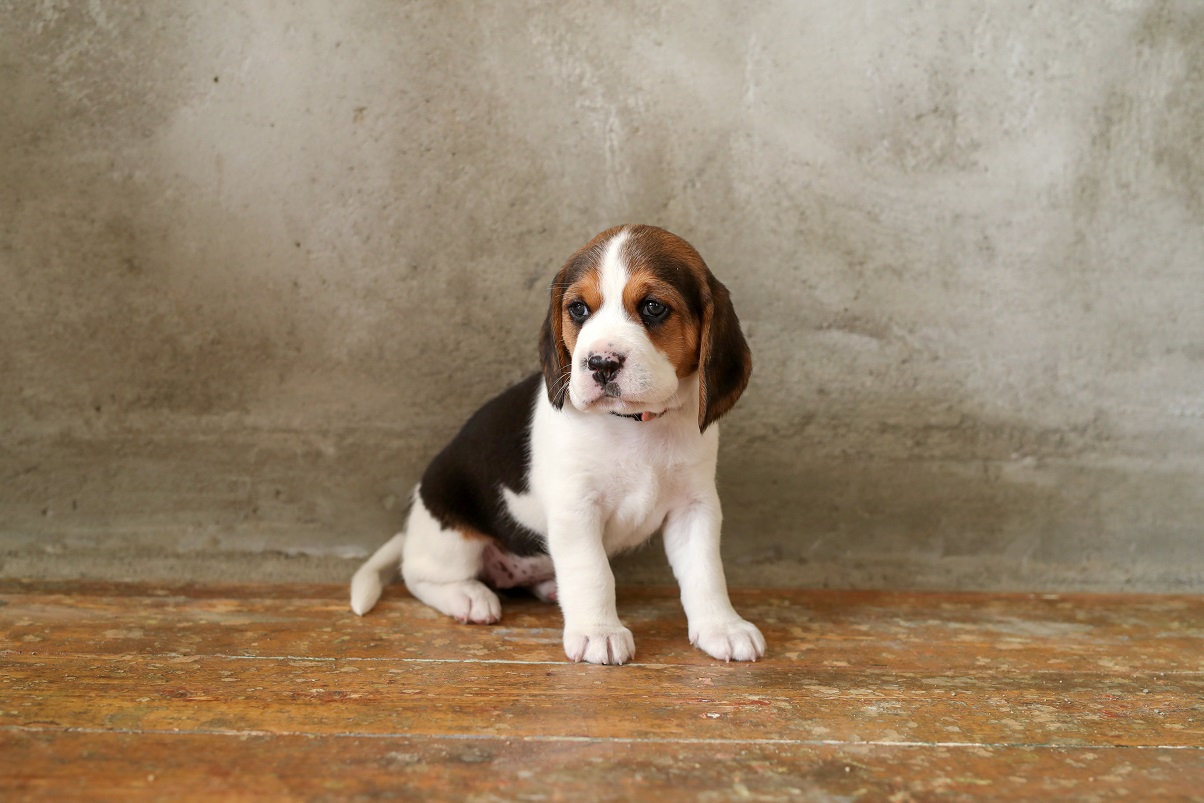
What You Need to Know Before Socializing Your Puppy
All puppies go through a “critical socialization period,” a brief window in which they can easily and quickly accept and adapt to new things.
This is the ideal time to get them used to as many new people, places, animals, and situations as possible.
The problem is, the window opens when a dog is around 3 weeks old and closes again at around 12-16 weeks old, depending on breed, personality, and various other factors. Obviously, that doesn’t really give you a lot of time to play with.
Dogs can and, indeed, are socialized after that period. But there’s no getting around the fact that a 10-week old puppy is easier to socialize than a 10-year-old dog.
While pups do go through ‘fear’ periods, their fears are less entrenched and more easily overcome than those of an adult dog. They also haven’t had the chance to develop any ingrained habits or behaviors, both of which can make later socialization difficult.
All in all, the earlier you can start socializing your puppy and taking advantage of that critical socialization period, the better.
But how do vaccinations fit in with that? After all, most puppies aren’t fully vaccinated until they’re at least 12 weeks old.
There’s no denying that until they receive their final shots, puppies are at an increased risk of an infectious disease. The good news is that it’s still possible to begin socialization prior to that, providing you follow basic safety precautions.
Most vets recommend that dogs receive at least one round of vaccinations and the first round of deworming before socialization. That means that from around the age of 7 weeks, your dog can start being introduced to new situations.
For now, dog parks and dog-oriented places are a no-go. Your pup will need to be kept well away from anywhere they might come into contact with pee or poop from unfamiliar dogs, both of which can carry disease.
If you know that a particular neighborhood park or beach is frequented by dog walkers and their charges. It’s best to steer clear until the last of the vaccinations are dished out.
That doesn’t mean there isn’t plenty you can still do in the meantime. Setting up play dates in secure areas with healthy, fully vaccinated dogs, arranging visits from friends and family, taking them on car journeys…. the list goes on.
Related Post: Why Is My Puppy Scared Of Other Dogs? – Dealing With A Frightened Pup
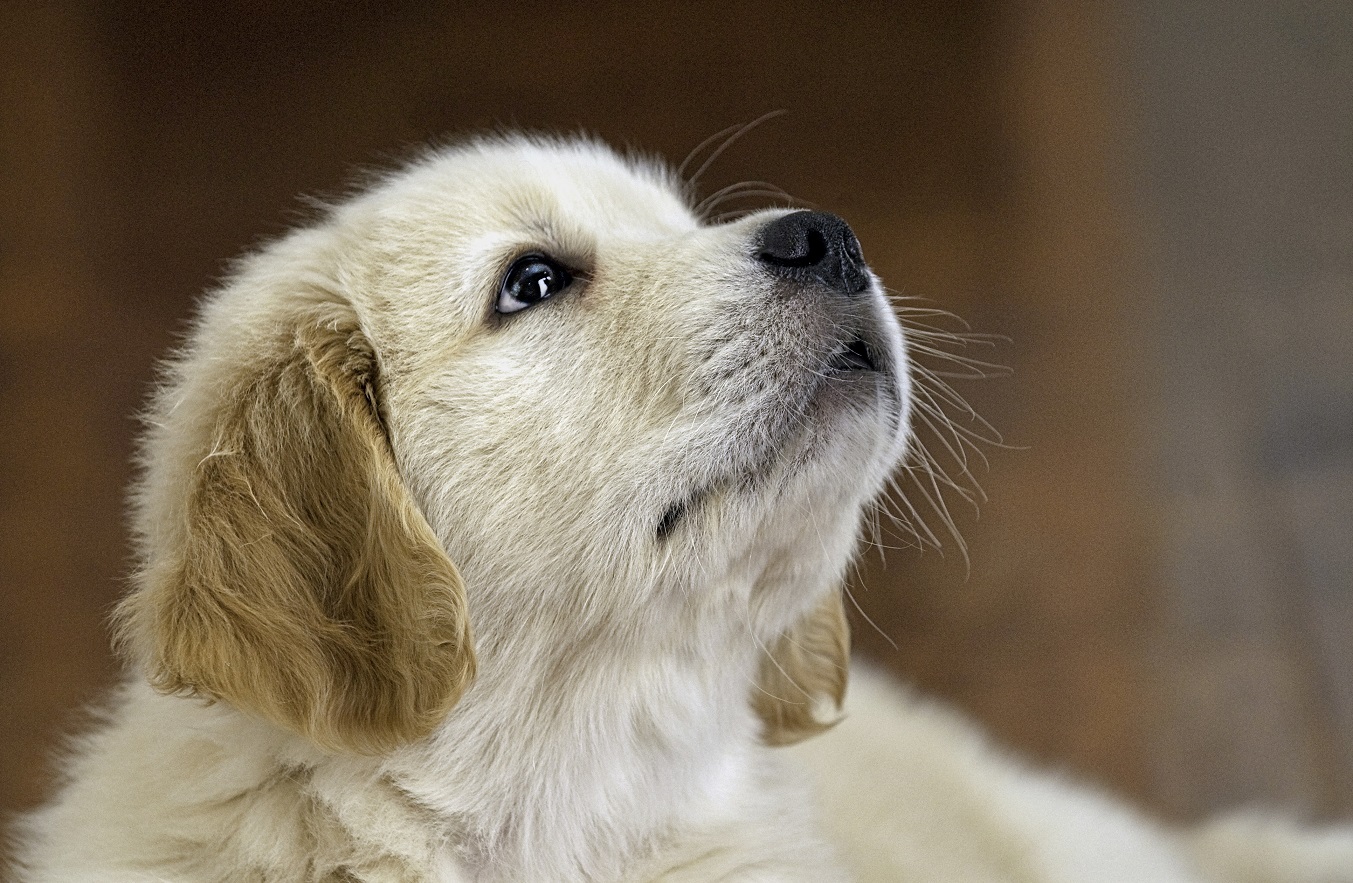
How To Socialize a Puppy Before Vaccinations
Exposure and socialization are two very different things. Letting your pup peep through a schoolroom window won’t get them used to kids or make their future interactions with them any better.
Interaction is key. As is including as many different types of stimuli as possible.
Some people tend to limit socialization to people and animals. The truth is, your dog is going to have to get used to a lot more than just new faces and species.
Vet visits, different types of surfaces, traffic, car rides… basically, the sooner your pup encounters the things they’ll come across as adults, the better.
Before you begin socializing your pup, think about how you want them to behave as adults.
If you want them to…
- Encounter new dogs, people, and kids on walks without batting an eye
- Cope with potholes, construction sites, and street grates with ease
- Stay calm around people with mobility aids, cyclists, and kids on scooters
- Be as willing to do their bathroom business on grass as on cement…
…Then, you need to factor all those different things into the socialization process.
The experiences don’t need to be prolonged. But they do need to be relaxed and calm.
If you can give your pup the confidence to deal with all the things they’re likely to encounter in the future, you’ll be doing both them and yourself a major favor.
But…
How exactly do you do all of this before they’ve received their full course of vaccinations?
Actually, it’s simpler than it seems. While unleashed romps around the dog park are off the table, there’s plenty of things you can do to socialize your pup before their final shot.
If you’re still a little nervous about the whole thing, relax. Raising a pup is often challenging, but there are ways to make it less fraught.
Before we start looking at some of the ways you can socialize your pup safely and effectively, take a moment to check out the Puppy Coach Program I mentioned a little earlier.
If you’re struggling with knowing what to do, when to do it, and how to do it best, you’ll find the course invaluable.
See it as a kind of instruction manual, a step-by-step accompaniment to raising a pup. It won’t do the hard work for you, but if you follow the tips and recommendations, you’re guaranteed a much easier ride.
Now, on to those socialization techniques…
Set Up Play Dates
Unless you want your dog to spend their life cowering in fear at every knock on the door, get them used to receiving visitors now. Invite your friends, your family, your kid’s friends, heck, even the mailman, for coffee.
The more people they get used to seeing around the house now, the less likely they are to get fearful or territorial in the future.
Try to include people of as many different ages, ethnicities, heights, weights, and everything else in your invitations as possible. The ultimate goal is to get your dog to feel comfortable with the full spectrum of humanity, rather than one particular demographic.
Make the Rounds
Getting your pup used to strange faces in your own home is a great start. But if you can get them used to meeting people in unfamiliar environments as well, even better.
Ask your friends and family if they’d object to a little visitor. If they don’t, arm yourself with your pup and a bag of treats and head on out.
Learning how to behave and act calmly in new environments is a great life lesson. Just be sure to keep those treats coming to keep things as relaxed and positive as possible.
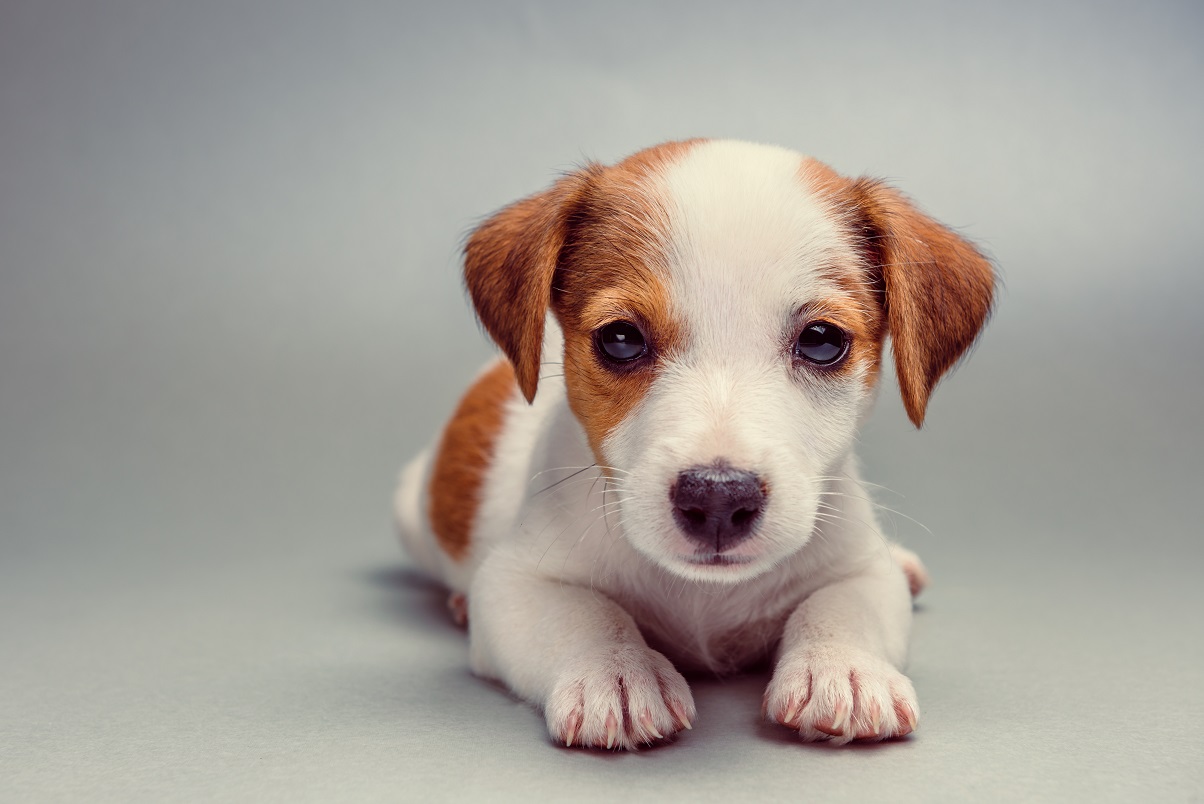
Take a Puppy Class
It’s easy to balk at the idea of taking a puppy class. After all, doesn’t running around with a pack of new dogs put your puppy at increased risk of disease?
It does… but it’s a calculated risk. And providing it’s a well-run class, it’s a very minimal one.
The chance of your pup catching anything contagious at a high-quality puppy class is tiny. The chance of them learning valuable, lifelong lessons is huge.
By teaching your pup how to get along with other dogs, how to respond calmly to being handled by other people, and the basics of proper etiquette and obedience, a puppy class provides the ideal foundation for future success.
Your pup will learn that other dogs are fun and that new faces are nothing to be feared. And that far outweighs the very fractional risk of disease.
If you need more advice on how to set your pup up for success, remember to check out the Puppy Coach Program. If things aren’t going as smoothly as you imagined, the course will give you the skills and information you need to turn things around.
Walk the Streets
Taking your pup for walks around areas frequented by other dogs isn’t a good idea. If coughs and sneezes spread diseases in people, pee and poop does the same in the animal kingdom.
But that doesn’t mean you need to avoid the streets altogether.
Exposure to different noises, different smells, and different sights are part and parcel of growing up. If you can find a way to introduce your pup to those things without putting their health at risk, they’ll be far less likely to react negatively to them in the future.
As to how you do it, take your pick. The pet market is packed with strollers, backpacks, slings, and carriers that will let you easily and safely take your pup out into the world.
Just remember you’ll be the one doing all the leg work, so try to pick an option that won’t leave you sweaty and sore by the end of the day.
Hit the Road
For most dogs, car journeys are a fact of life. If we need to take them to the vet, on vacation, to the beach, or anywhere else for that matter. A car is usually involved somewhere along the line.
If you can get them used to the motion and experience of riding shotgun at an early age, you’re less likely to be mopping up sick or calming frazzled nerves in the future.
Keep things short and sweet at first. A quick 5 minute spin around the neighborhood will help them adjust to the new experience and even start enjoying it.
Over time, you can start building up to longer journeys.
Visit the Vets
You can’t make your pup love getting poked and prodded during examinations. But you can make the process a whole lot smoother by getting them used to the veterinary clinic.
Set up regular appointments with the vet to get them weighed, measured, and checked out.
Make the experience go with a bang by bringing along a stockpile of treats. If your pup starts thinking a visit to the vet means a tasty treat, they’ll be setting their own appointments before you know it.
Make Friends with the Enemy
Unless you want your pup to be a fully signed-up member of the cat-hating brigade, start making the introductions now.
In truth, the relationship between cats and dogs isn’t always a marriage made in heaven. No matter how much you try, the chance of them becoming BFFs is pretty slim.
But ultimately, that’s not the goal. Your pup doesn’t have to love cats, but they do need to know not to fear, chase, or otherwise make their lives a misery.
If any of your friends or family have cats (or any other types of animals, for that matter), arrange a meet and greet.
If your pup can learn proper manners around other animals now, there’s less chance of any ill-fated encounters in the future.
Related Post: What To Do If Your Dog Barks At Cats – How To Stop Obsessive Barking
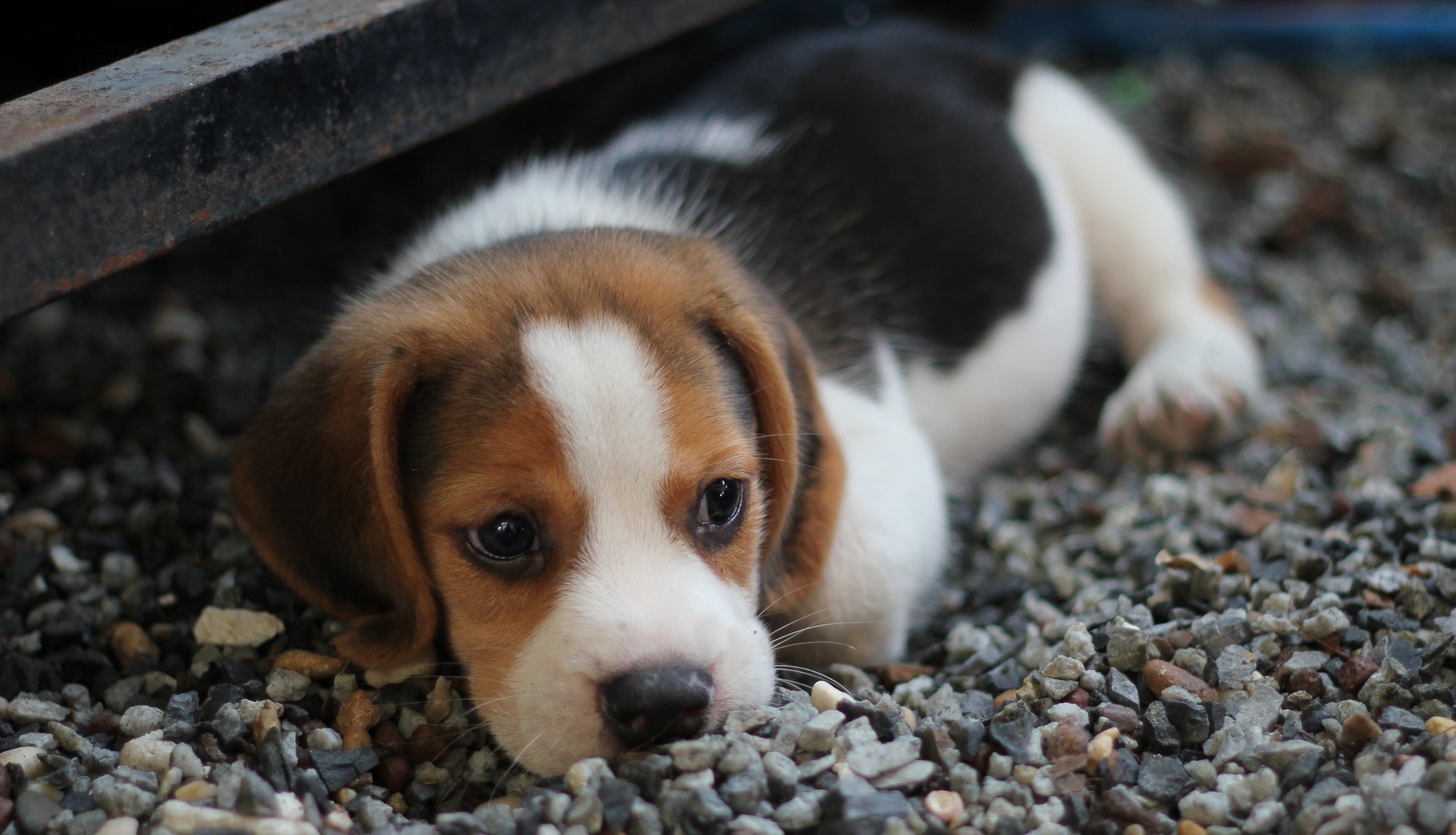
Wrapping Things Up
It’s impossible to overstate just how important socialization is. Without it, dogs can develop fears, anxieties, and behavioral problems, none of which are pretty to deal with.
Although it’s tempting to keep your pup under lock and key until they’ve received their final round of vaccinations, don’t – not if you value their future health and happiness.
Sure, some forms of pre-vaccine socialization involve a degree of risk, but that risk is fractional and easily controlled. It’s also nothing compared to the risks that an unsocialized pup who doesn’t know how to interact with the world will face in the future.
If you want to set your dog on the path to success, don’t wait for that final jab. The sooner you start socializing them, the bigger the rewards will be.
